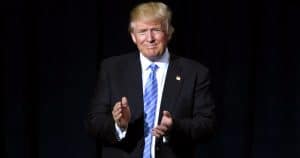USA to designate specific cartels as foreign terrorist groups
The Trump administration is poised to make a significant move in its battle against international crime by designating various drug cartels in Mexico, and Central, and South America as foreign terrorist organizations.
The measure is aimed at curbing the intense violence connected to these groups and comes in the wake of an executive order by President Trump that intensifies efforts to dismantle these cartels, Breitbart reports.
The U.S. State Department is expected to formalize the designation of several notorious Mexican cartels. These include the Sinaloa Cartel, Cartel Jalisco New Generation, The Gulf Cartel, the Northeast Cartel or Cartel Del Noreste faction of Los Zetas, Carteles Unidos, and Familia Michoacana.
Trump's Executive Order Paves the Way
President Donald Trump previously underscored his administration’s commitment to counteract the influence of these cartels. On January 20, he signed an executive order that calls for not only the designation of these cartels as terrorist groups but also their complete eradication.
This stance arises from an alarming level of violence that continues to plague Mexico, with reports of landmines and improvised explosive devices frequently surfacing. Despite assertions from Mexican authorities of decreased crime rates, violence remains unabated.
In addition to the Mexican cartels, the designation also includes the notorious Mara Salvatrucha, a Central American gang, and Tren De Aragua from South America. This broadens the scope of the U.S. effort to combat the influence of such organizations.
Clarification of Organizations Targeted
The New York Times initially reported that Clan Del Golfo was part of the designated groups. However, it was later clarified that the reference was intended for the Gulf Cartel, which operates primarily in northern Mexico.
Reports from Breitbart Texas have shed light on the extent of the Gulf Cartel's operations in northern Mexico. The Cartel is notorious for maintaining its power and control, partly due to the protection it purportedly receives from both local and federal government entities.
This violent landscape is unfortunately marked by the cartels’ consistent involvement in heinous activities including mass killings, kidnappings, torture, and the use of explosives. Each of the six Mexican cartels linked to these activities has fostered a reign of terror prompting their placement on the terrorist list.
Impending Announcement Meets Complexity
The official announcement of these designations by the State Department is expected on February 19. This step reflects ongoing efforts by the U.S. to dismantle the complex networks these cartels have established.
The implications of this designation are significant, providing the U.S. with additional resources and strategies to tackle and dismantle these organizations effectively. It also intensifies pressure on cartels, impacting their financial networks and operational capabilities.
The violence linked to these groups poses a dual threat, impacting the safety and stability of countries where they operate and extending adverse effects beyond borders. This designation could strengthen international cooperation to quell the widespread influence of these groups.
Ongoing Violence Despite Government Claims
Mexico continues to experience disturbing levels of violence despite government claims of crime reduction and attempts to curb impunity. The narrative of control and reduction conflicts starkly with ongoing reports and alarming trends.
The decision to label these organizations as terrorist groups will carry substantial geopolitical implications. The U.S. could further bolster collaborative efforts with Mexico and other nations in Central and South America to root out these cartels.
The imperative for action becomes increasingly pronounced as these groups proliferate and impact the lives of ordinary citizens. The focus now centers on rolling back their reach and significantly hindering their operational prowess.
Conclusion Draws Global Focus
This move by the Trump administration marks a pivotal turn in its anti-cartel policy. It signals a robust stance against the rising tide of criminal violence attributed to these organizations.
As the formal announcement approaches, stakeholders within the U.S. and beyond will be watching closely. The hope is that these measures will pave the way for meaningful change and support wider efforts to curtail the power of these perilous groups.
The ultimate aim remains to ensure safety and security for communities ravaged by the insidious influence of such cartels. Further developments will likely follow as these measures take hold and the impact is assessed.




